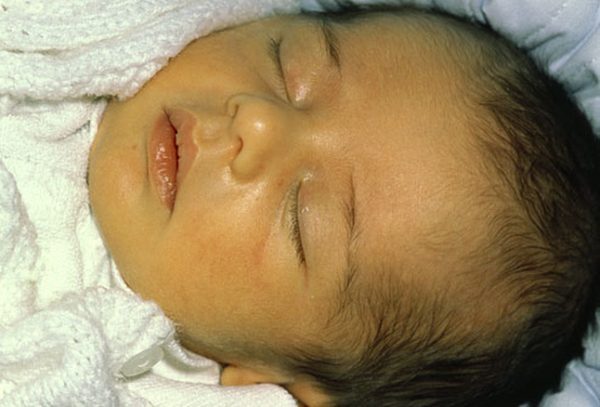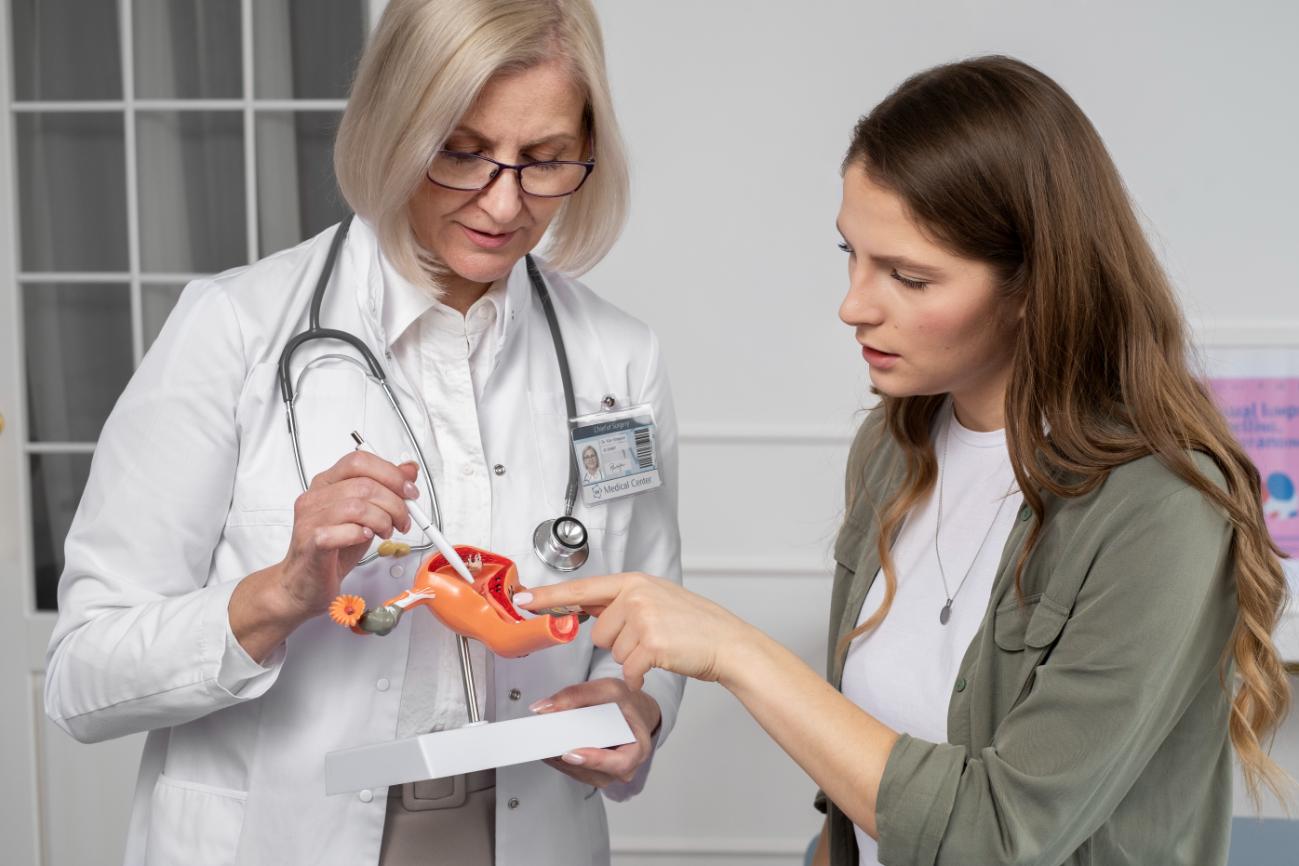
The thyroid gland is a butterfly shaped organ located at the front of the neck just below the Adam’s apple (larynx). A normal thyroid gland will not be outwardly visible or able to be felt when you apply finger pressure to the neck.
The main function of the thyroid gland is to take iodine from foods we consume and convert them into thyroid hormones:
Triiodothyronine (T3)
Thyroxine (T4)
T3 is the more active form of thyroid hormone. T4 is converted into T3 inside the target cells. Both T3 and T4 are released into the bloodstream which in turn influences the speed of your body metabolism. It also regulates your heart rate and how fast your intestines digest the food you take. It is important that T3 and T4 levels are neither too high nor too low. If T3 and T4 levels are low it is called hypothyroidism and when T3 and T4 levels are high in the bloodstream, the condition is called hyperthyroidism.
Thyroid and fertility in women:
Though thyroid hormones are associated with various metabolic activities, the major role it plays is in fertility. Research studies show that thyroid disorders can lead to major reproductive problems in women including miscarriage, chronic anaemia during pregnancy, preterm labour etc.
Hyperthyroidism and pregnancy:
The most common symptom of hyperthyroidism in women is missed or light menstrual cycles and weight loss. It is estimated that 2.3% of women with fertility problems show an overactive thyroid, compared with 1.5% of those in the public. Most women with hyperthyroidism are able to conceive if the thyroid dysfunction is properly screened and treated to protect both the woman and her baby during pregnancy. If not monitored in advance, hyperthyroidism can lead to various pregnancy complications like increase in blood pressure late into the pregnancy, premature delivery, low birth weight in the new born or even a miscarriage.
Hypothyroidism and pregnancy:
Hypothyroidism affects about 0.5% of women of reproductive age. The common symptoms associated is frequent, heavy periods and weight gain. It is found to interfere with the release of egg from the ovary thereby affecting the ovulation process. Hypothyroidism has also been linked with the development of ovarian cysts, and such cysts may regress upon thyroid treatment. In pregnant women it can occur spontaneously, during or after pregnancy, or after the treatment for hyperthyroidism. It can also be a congenital condition where you have the problem by birth itself.
Thyroid and fertility in men:
When discussing about thyroid disease, it is commonly showcased as a women’s problem. But the fact is that one-third of hypothyroidism cases arise in men. Treating thyroid problem may completely address fertility issues in men if no other causes are suspected.
Low thyroid hormone levels in men leads to poor semen quality, low sperm count, reduced testicular function, erectile dysfunction and a drop in libido. If not treated, an underactive thyroid can lead to male infertility. Once hypothyroidism is diagnosed in a man with fertility problems, restoring the hormone levels to normal and it solves the erectile dysfunction problem. In most cases, problems related to sperm quantity and quality also improve over time. Even though discussed less, hyperthyroidism in men is also linked to fertility issues. High thyroid levels can lead to higher testosterone and gonadotropin hormones, which may lead to sperm damage.
Diagnosis and treatment:
A simple blood test is carried out to assess the thyroid hormone levels. Proper screening and medication can help to improve thyroid function in both men and women.The key to getting pregnant and carrying to term successfully, in the best health, is to address thyroid issues in both men and women prior to conception. Routine thyroid screening and treatment is found to improve semen quality and other associated problems in men.Reducing iodine intake or beginning thyroid hormone replacement therapy can elevate sperm count in some hypothyroidism cases.
If you have hypothyroidism and planning for pregnancy, make sure your hypothyroidism is brought under control with medication. Women with untreated or neglected thyroid problems may affect their baby’s growth and brain development. For moderate thyroid issues that do not involve an additional medical diagnosis, hormone levels can commonly be restored within a few months. Once the thyroid function is corrected, natural conception occurs in most cases. If necessary, seek additional help from an infertility specialist. In such cases close monitoring of the thyroid hormone level throughout the pregnancy period is required to ensure normal fetal development and reduce the risk of miscarriage.
It is advisable for women with fertility issues to undergo thyroid screening tests before starting any kind of fertility treatment. This may increase the chance of pregnancy, decrease the risk of a miscarriage, and improve the health of the new born. If infertility is not addressed after hypothyroidism has been resolved, other infertility treatment options may be needed.
After child birth women who have previously had hyperthyroidism may relapse at any stage, but the risk rises after giving birth and remains high for one year. Routine blood tests should be done around three months after delivery and at intervals thereafter.
Healthy lifestyle and diet for thyroid disorders:
Not all thyroid issues originate with the thyroid. The adrenal glands mediate the body’s multiple responses to all forms of stress. Poor eating habits, a busy schedule, emotional stress, caffeine, food intolerance, immune disorders and other triggers contribute to adrenal stress which in turn reduces the conversion of T4 to active T3 in target cells. Hence treating the thyroid without providing adrenal support may not be effective in some cases.
Poor diet and nutritional deficiency are also the major reasons for thyroid problems. It is always advisable for persons with thyroid disorders to include organic foods (food) when possible, as the thyroid is very sensitive to environmental toxins. Iodine-rich foods (food) like navy beans, strawberries, whole fat yogurt, raw cranberry, dried seaweed, tuna, and turkey breast supports thyroid health. Too much iodine can also cause goitre. It is important to get a balanced amount of iodine in the diet. Your physician may also recommend natural supplements such as Zinc, Vitamin E, Vitamin A, Vitamin B and Vitamin C as a part of thyroid disorder management.
For enquiries related to treatment of infertility, send a message to www.KJKHospital.com/contact





